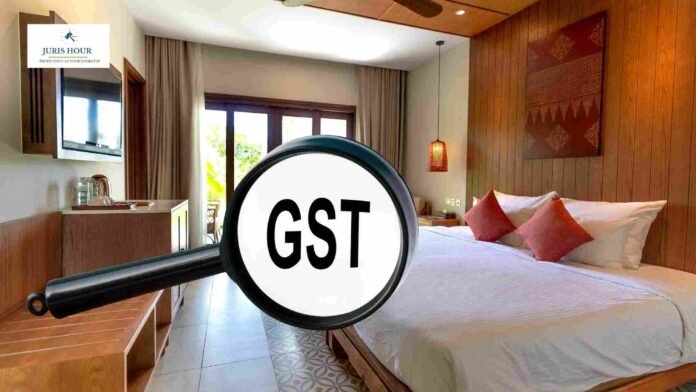The Federation of Hotel & Restaurant Associations of India (FHRAI) has urged the Union Finance Ministry to streamline the Goods and Services Tax (GST) regime applicable to the hospitality industry, highlighting long-standing issues such as unresolved tax disputes, loss of input tax credit (ITC), and an inconsistent structure linking restaurant GST rates with hotel room tariffs.
In a detailed representation submitted to Finance Minister Nirmala Sitharaman, the apex body of the hospitality industry called for immediate policy interventions to regularise pending GST liabilities, restore ITC benefits to hotels and restaurants, and delink the food and beverage (F&B) taxation structure from room pricing.
The Aurangabad bench of the Bombay High Court has granted an interim stay on the levy of 18% GST on restaurant services situated within hotels where the room tariff exceeds ₹7,500 per day subject to furnishing bank gaurantee of Rs. 40 lakhs within a period of six weeks.
Regularisation of Pending GST Disputes
FHRAI stated that several hotel establishments are facing tax demands due to differing interpretations of GST provisions since its rollout in 2017. Many of these disputes, the association said, stem from confusion over “declared tariff” versus “transaction value,” as well as inflated tariff figures reflected on online travel portals, which include commissions and service fees.
“These cases do not reflect tax evasion or willful misreporting but are the outcome of technical ambiguities and transitional challenges during the early years of GST implementation,” FHRAI said in its submission.
The body urged the Finance Ministry to invoke Section 11A of the Central GST Act, 2017, a provision introduced by the Finance (No. 2) Act, 2024, which empowers the government to regularise past tax disputes arising from interpretational issues. FHRAI has requested that such cases be settled on an “as-is” basis, thereby bringing long-pending matters to closure and reducing litigation.
The association further sought official clarifications to protect businesses in instances where services were not rendered, or payments were not received, ensuring that hotels are not penalised for non-receipt of consideration.
Demand for Restoration of Input Tax Credit (ITC)
Another key concern raised by FHRAI relates to the withdrawal of ITC benefits following the GST rate revision for hotel rooms below ₹7,500 per night. In 2019, the government had reduced the GST on such rooms from 12% to 5% but removed the ITC benefit in the process.
While acknowledging that the rate cut helped make hotel stays more affordable for consumers, FHRAI pointed out that it significantly raised operating costs for mid-segment hotels, which can no longer claim ITC on key expenses such as rent, utilities, and maintenance.
The association recommended that ITC benefits be reinstated even for the 5% rate slab, and that hotel rooms be recognised as “plant and machinery” for credit eligibility. It also proposed increasing the tariff threshold from ₹7,500 to ₹12,500, citing inflation, rising input costs, and currency depreciation since 2017.
To ensure smoother implementation, FHRAI suggested the issuance of transitional guidelines to promote uniform compliance and prevent future interpretational differences.
Call to Delink F&B GST from Hotel Room Tariffs
A major structural reform sought by FHRAI is the delinking of restaurant GST rates from hotel room tariffs. Currently, restaurants within hotels that charge room tariffs above ₹7,500 must levy 18% GST with ITC, while those in hotels below that tariff are taxed at 5% without ITC.
FHRAI contended that this linkage has led to operational and accounting complexities, distorting the market and discouraging flexibility in pricing. It has proposed that all hotel-based restaurants should be given the option to choose between 18% GST with ITC or 5% without ITC, independent of the hotel’s tariff category.
The association argued that such flexibility would not only simplify compliance but also create a level playing field across the industry.
A recent study conducted by the FHRAI Centre of Excellence for Research in Tourism & Hospitality (CERTH)found that revising or removing the ₹7,500 threshold could enable mid-tier hotels to increase tariffs during peak demand, potentially boosting annual GST revenues by more than ₹4,000 crore.
Industry Outlook and Way Forward
FHRAI President Surendra Kumar Jaiswal emphasised that the hospitality sector has been a consistent contributor to India’s economic development but continues to face challenges due to outdated tax structures and procedural inconsistencies.
“Regularising past dues, restoring ITC, and decoupling F&B taxation from room tariffs are crucial for creating a fair and transparent GST ecosystem,” Jaiswal said. “These reforms will not only simplify compliance and reduce disputes but also enhance the government’s revenue and strengthen India’s position as a global tourism hub.”
The association added that a simplified and predictable tax framework would align with the government’s ‘Viksit Bharat @ 2047’ vision, boosting investor confidence and supporting sustainable growth in the tourism and hospitality sector.
FHRAI concluded that rationalising the GST structure is no longer just an industry demand but an economic necessity to ensure the competitiveness and long-term viability of India’s hospitality sector.
Read More: CCI Approves Acquisition Of Jaiprakash Associates By Vedanta

